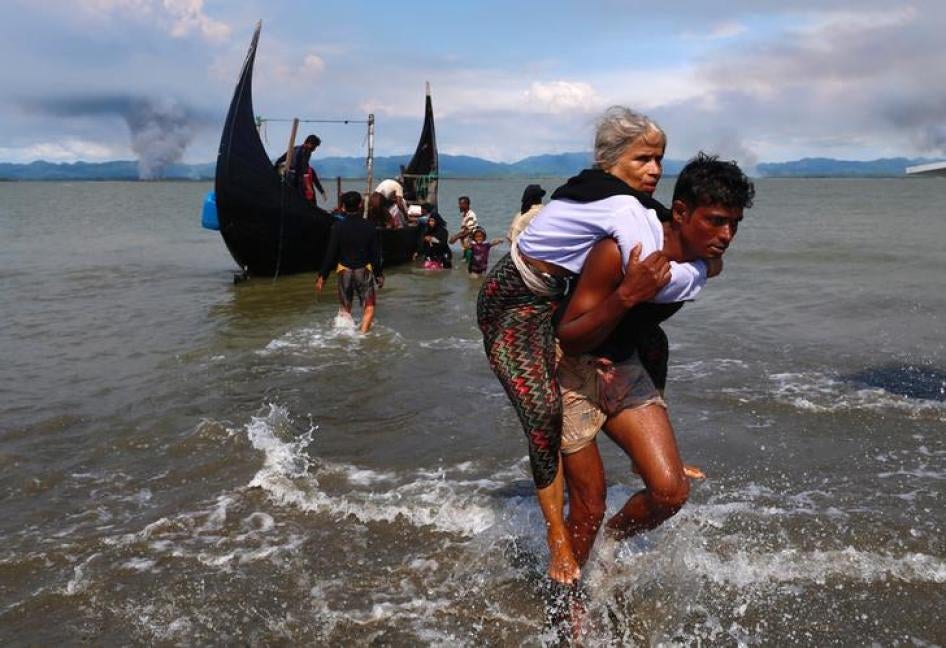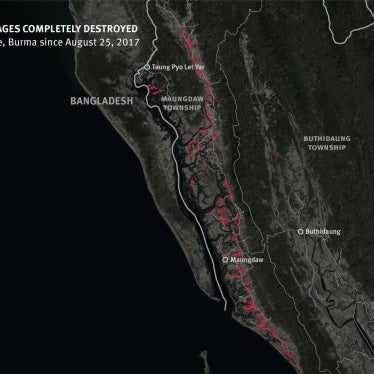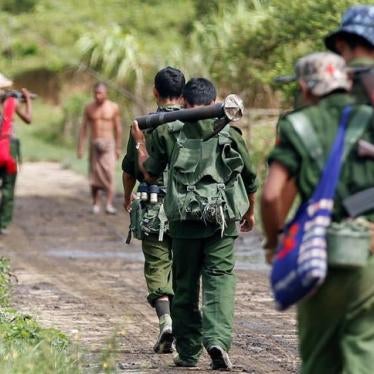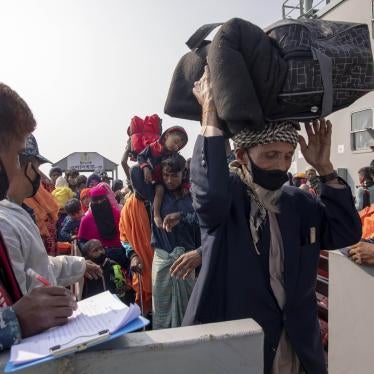World leaders meeting at the United Nations in New York this week will address the Myanmar government's ethnic cleansing campaign against its Rohingya population. Meanwhile, Thailand's military junta has announced a policy designed to push back desperate Rohingya seeking to escape the atrocities in Myanmar's Rakhine state, and deny them access to refugee protection.
On Aug 25 the militant Arakan Rohingya Salvation Army attacked 30 police outposts and an army base. In response, the Myanmar military carried out mass arson, killing and looting, destroying hundreds of villages and forcing nearly half a million Rohingya to flee to Bangladesh. The United Nations called it "a textbook example of ethnic cleansing".
Rather than sympathy and support for those at risk, Thailand is preparing to respond with the back of its hand. The Internal Security Operations Command (Isoc), chaired by Prime Minister Gen Prayut Chan-o-cha, announced authorities will enforce a three-step action plan.
First, the navy will intercept Rohingya boats that come too close to the Thai coast. Then, upon intercepting such boats, officials will provide fuel, food, water, and other supplies on the condition the occupants agree to travel onward to Malaysia or Indonesia. Lastly, any boat that somehow manages to land on Thai shores will be seized, and immigration officials will apprehend and put Rohingya men, women and children in indefinite detention.
These inhumane measures were announced shortly after the meeting between Snr Gen Min Aung Hlaing, Myanmar's army chief, responsible for the military operations against the Rohingya, and Thailand's junta leaders on Aug 31. In the past four weeks, over 420,000 Rohingya have fled to Bangladesh, and satellite imagery and heat sensors analysed by Human Rights Watch have shown more than 228 villages burned to the ground in northern Rakhine state. Those refugees are joining more than 300,000 Rohingya already in Bangladesh because of repression and abuses.
Thailand knows well that successive Myanmar governments have persecuted the Rohingya. Myanmar civilian and military officials have regularly imposed severe restrictions on the Rohingya's freedom of movement, assembly, and association. They have also levied demands for forced labour, engaged in religious persecution, and confiscated their land and resources. Despite the Rohingya having been in the country for generations, Myanmar's 1982 Citizenship Law effectively denies Rohingya citizenship, leaving them stateless. Even their right to self-identify as Rohingya is denied by a government that calls them "Bengali" and deems them immigrants from Bangladesh.
Many Thais can recall when the Thai-Malaysian border camps of human traffickers were broken up in May 2015, revealing many Rohingya had died from starvation and disease. Survivors told of a terrifying ordeal in the hands of traffickers. Still, given the lack of security and primitive camp conditions in Bangladesh, many Rohingya are expected to travel by sea starting next month, when weather conditions on the Andean Sea improve, and try to pass through Thailand to seek sanctuary in Malaysia and Indonesia.
Thai authorities have for years said they do not want to accept Rohingya refugees. However, under international law, Thailand cannot summarily reject at the border the claims of asylum seekers fleeing widespread human rights abuses or generalised violence. Thailand is obligated to allow them to enter the country and seek protection.
Thailand should help the oppressed Rohingya from Myanmar, not worsen their plight. The inhumane "push-back" policy planned for new boat arrivals should be scrapped immediately. Instead, Thailand should take the lead in efforts to set up a regional preparedness mechanism that will support search and rescue operations to help Rohingya boats at sea.
Thailand should also grant the United Nations High Commissioner for Refugees (UNHCR) unhindered access to screen all Rohingya arriving in Thailand, and permit them to identify and assist those seeking refugee status. As the UNHCR guidelines state that detention should not be used as a punitive measure or as a means of discouraging refugees from applying for asylum, Thai authorities should work closely with the United Nations refugee agency and the International Organisation for Migration (IOM) to provide temporary shelters for Rohingya before they are resettled in third countries such as Malaysia and Indonesia. In this regard, it is critical for other governments to provide necessary assistance to Thailand.
One way for Thailand to help stem the flow of new arrivals would be to pressure Myanmar to stop the atrocities from which the Rohingya are fleeing. However, successive Thai governments have failed to speak up for the rights of the Rohingya, or the situation in Rakhine state. By continuing to turn a blind eye to the plight of Rohingya, Thailand's reputation will be at risk, and the government will face a continued exodus by desperate Rohingya. Thailand needs to act fast if it wants to play a leadership role in a regional solution to save lives of Rohingya facing ethnic cleansing in Burma.










